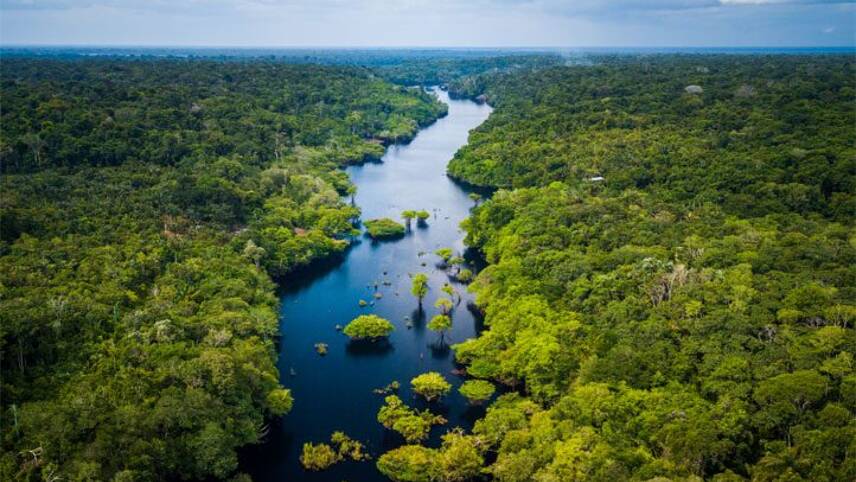Register for free and continue reading
Join our growing army of changemakers and get unlimited access to our premium content

Currently, more than 18,700 companies globally disclosed data on climate change through CDP, but only 8,700 disclosed any information related to biodiversity
The TNFD confirmed the body of work alongside other organisations at the Amazon Summit in Brazil.
The Taskforce argues that the availability of accurate and decision-useful data related to nature is “an essential pre-requisite” to reverse nature loss, enabling corporates to become more resilient and supporting local communities by funnelling more funds into nature restoration and protection.
The organisations have come together to evaluate the case for a global nature-related public data facility. Initially, the body of work will focus on improving the availability, quality and comparability of the state of nature data.
The 12 organisations supporting the TNFD in this body of work are the Global Commons Alliance Accountability Accelerator (GCAA), Capitals Coalition, CDP, Global Reporting Initiative (GRI), Global Biodiversity Information Facility (GBIF), Open Earth, MRV Collective, Science Based Targets Network (SBTN) and UN Environment Programme World Conservation Monitoring Centre (UNEP-WCMC), with research and project management support by Nature Finance and Systemiq.
“Government, business, finance and civil society can’t take effective action on nature and climate challenges without high-quality, comparable and easily accessible data. A lot of progress has been made since the Paris Agreement to upgrade the quality and accessibility of climate-related data,” TNFD’s executive director Tony Goldner said.
We now need a step change in focus and funding to enhance a global baseline of nature-related data. Building on the capabilities and work of many national and international scientific bodies and organisations over many decades, we believe there is a strong case for connecting, scaling and maintaining nature-related data through a global public data facility.”
The TNFD argues that interest in global-scale solutions to nature-related data needs have accelerated since the successful agreement of the Kunming-Montreal Global Biodiversity Framework at the CBD COP15 meeting in Montreal in December 2022. During the meeting, UN nations agreed on a new Global Biodiversity Framework, aimed at halting land and water deterioration, restoring 30% of degraded ecosystems on land and sea by 2030 and unlocking new finance streams for nature recovery.
Forthcoming framework
The TNFD comprises 40 senior executives drawn from leading financial institutions, corporates and market service providers, with combined assets of more than $20trn. To date, it has garnered the support of more than 1,000 organisations, with 200 organisations piloting and testing aspects of the draft framework.
In March 2022, the TNFD unveiled the first iteration of its beta framework to help corporates outline and disclose nature-related risks and impacts in alignment with corporate reporting.
At the time, the TNFD found that a significant amount of nature-related metrics and data already exist but challenges remained around standardisation of methods and definitions. It also found that new nature-related data technologies and solutions are emerging, ranging from specific uses of satellite data to new collaborations between scientific institutions and market data providers.
One year on, the TNFD released its fourth and final draft framework to enhance corporate approaches to disclosing nature-related data, introducing new steps to align reporting with the Taskforce on Climate-related Disclosures (TCFD). A final version is due for publication in September 2023.
The latest TNFD framework adapts the commonly used Scope 1, 2, and 3 in emissions reporting and has redefined them for use in nature, covering direct operations, upstream, downstream and financed impacts. Draft guidance has also been included on the use of scenario analysis for nature-related issues.
The final draft also draws on other relevant standards including the International Sustainability Standards Board (ISSB) and the Global Reporting Initiative (GRI), both of which were knowledge partners to the TNFD.
On the data mapping front, the 12 organisations will commence consultations with a wide range of stakeholders with a view to blueprinting a preferred governance system, and exploring funding and operating models for the public data facility. The plan is to align the facility with climate-related initiatives such as the Net Zero Public Data Utility (NZDPU).


Please login or Register to leave a comment.